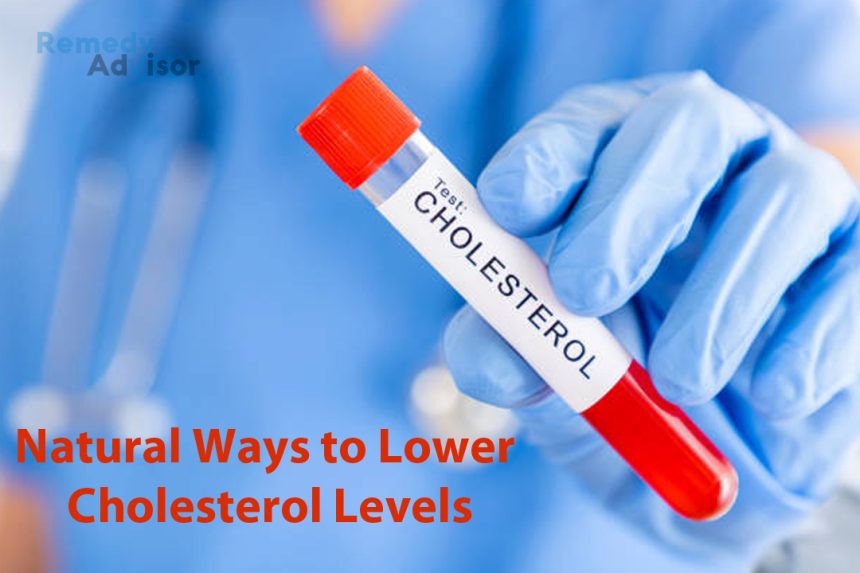For decades now, cardiologists have been warning us that a high level of low-density lipoprotein (LDL, or “bad”) cholesterol means an increased risk of heart attack.
In the United States, the average total cholesterol level is 210 the average LDL cholesterol level about 140.
But growing consensuses of doctors now believe that these average levels may be too high to ensure a healthy heart.
Each year, more than 800,000 Americans suffer their first heart attack. And many of these people have average cholesterol readings.
Doctors now think that your level of LDL cholesterol should ideally be no higher than 130. At that level, the fatty arterial deposits (plaques) that cause heart attacks are less likely to form.
Lowering elevated levels
If your LDL cholesterol is 130 or higher
• Switch to a diet low in fat
The average American gets 37% of his/her calories from fat. To lower the amount of fat in your diet, eat less meat and more fruits and vegetables substitute nonfat milk for whole milk and eat more oat bran and other forms of soluble fiber. Also: Ask your doctor about taking psyllium (Metamucil).
Saturated fat should account for no more than 10% of your daily caloric intake. The body uses dietary fat to make cholesterol. Few people realize it, but eating too much fat is worse for your heart than eating too much cholesterol. It’s okay to eat eggs once or twice a week.
• Get more exercise
Aerobic exercise at least 20 minutes, three or four times a week brings moderate reductions in LDL cholesterol. Exercise also increases levels of high-density lipoprotein (HDL) cholesterol. That’s the “good” form associated with reduced heart attack risk.
Do you need drug therapy?
What if your LDL cholesterol level is 160 or above despite a good diet and exercise regimen? Cholesterol-lowering medication may be appropriate if you smoke, have high blood pressure or diabetes and/or have a family history of heart attack. Even in the absence of these risk factors, drug therapy may be appropriate.
Three tests can give you information about your risk
• Lipoprotein (a) test
High levels of this blood component often represented as Lp (a) have been linked to heart attack. Normal Lp (a) levels are 20 or lower.
• Homocysteine test
Individuals with high levels of this amino acid in their blood are prone to heart attack. Your homocysteine level should be 10 or lower. Folic acid supplements help reduce levels of homocysteine.
• Ultrafast computed tomography (CT) scan
This 20-minute noninvasive test can check your coronary arteries for calcium. Calcified plaques are a sure sign of heart disease and may predict future risk of heart attack.
If these tests suggest an elevated risk, your doctor may recommend cholesterol-lowering medication.
Which drug is best?
The most widely used cholesterol-lowering drugs are the “statins.” Your doctor may recommend a statin, such as pravastatin (Pravachol) or simvastatin (Zocor). These two have been shown in large-scale studies to reduce heart attack rates.
Your doctor may also recommend high doses of the vitamin nicotinic acid (niacin). Although it is quite effective at lowering cholesterol, niacin can cause facial flushing and elevated blood sugar or uric acid. People taking it must be closely monitored by a doctor.
Hdl and triglycerides
Low levels of HDL cholesterol are associated with increased risk for heart attack. If your HDL level is less than 35, ask your doctor what you can do to raise it.
Studies suggest that HDL can be raised by niacin therapy moderate alcohol consumption (one or two drinks a day) and vigorous exercise.
A triglyceride level of 250 or higher is associated with increased heart attack risk, although high triglycerides pose less of a threat than high cholesterol.
Triglyceride levels can usually be lowered via weight loss, exercise and a diet low in fat and especially important sugar.
If you have high triglycerides, ask your doctor about substituting fresh fruit for fruit juices, which are extremely high in sugar.
Alternative approaches
People who eat lots of fish have a lower risk of heart disease. But there’s no evidence that fish oil capsules have the same effect. In some people, they actually raise LDL.
Fish oil capsules can help reduce extremely high triglycerides (over 1,000). If you have high triglycerides, ask your doctor if fish oil capsules are appropriate. Heavy consumption of garlic has been shown to bring modest reductions in cholesterol. But garlic pills have not been shown to work. There’s no harm in taking them, but don’t substitute them for proven cholesterol-lowering medication.
Already had a heart attack?
If you have had a heart attack or have heart disease, your LDL cholesterol should be less than 100. There is a good chance you may need medication to reach this goal.
Doctors are beginning to think that medication may be appropriate for virtually all heart attack survivors. A study published in The New England Journal of Medicine suggests that they are right. In this study, more than 4,000 heart attack survivors with average LDL cholesterol levels were given pravastatin or a placebo. Over the next five years, those who received pravastatin suffered 24% fewer heart attacks than those who got the placebo.
Lesson
If you’ve had one heart attack, reducing your cholesterol can reduce your risk of another even if your cholesterol level is not elevated. Your new target for LDL cholesterol should be 100 or lower. Currently, only one in four heart patients achieves this level.
Bottom line
Reducing cholesterol levels prevents heart attacks. If diet and exercise don’t do the job, medications are effective and very safe.







